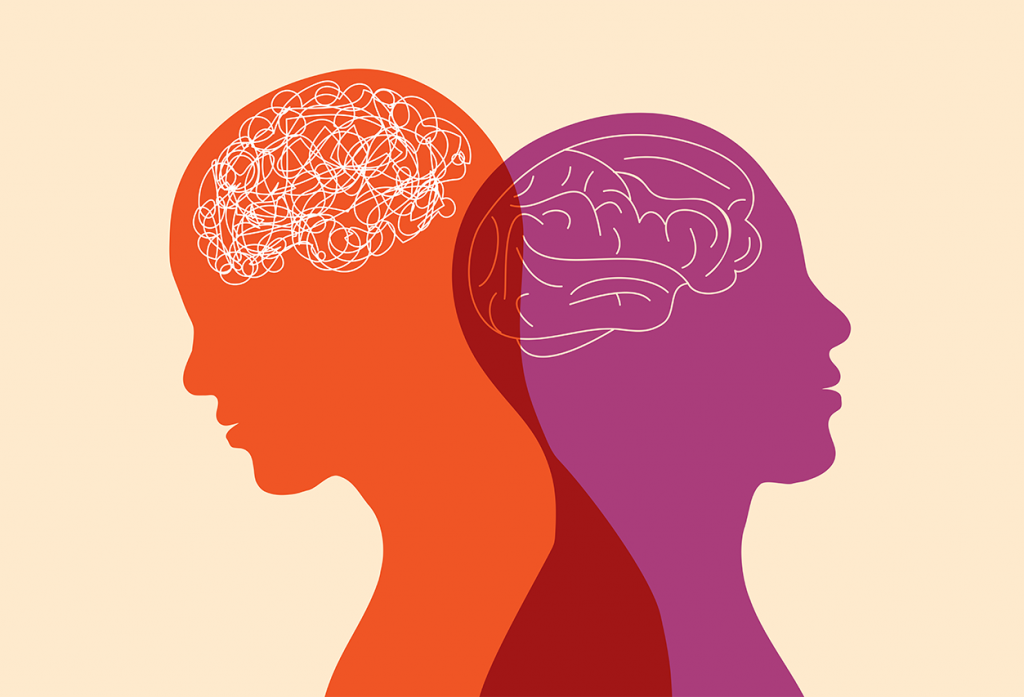Comprehensive Inpatient Mental Health Services for Effective Therapy
Inpatient mental health and wellness solutions represent an essential part of the health care system, giving a intensive and organized environment for individuals experiencing severe emotional distress. Exploring the nuances of this continuum reveals significant ramifications for both individual healing and broader psychological health end results.
Recognizing Inpatient Mental Wellness Solutions
Inpatient mental wellness services supply critical support for people experiencing serious mental distress that can not be handled effectively in an outpatient setting. These services are developed to supply an intensive level of treatment in an organized setting, commonly within a medical facility or specialized facility. People admitted to inpatient programs commonly show intense signs and symptoms, such as suicidal ideation, severe depression, or psychosis, requiring continuous tracking and treatment.
The admission process generally entails a detailed assessment by mental health experts, that assess the individual's psychological state, background, and immediate needs. As soon as admitted, individuals participate in a selection of therapeutic techniques tailored to their specific requirements, consisting of medicine monitoring, individual treatment, and team sessions. This holistic technique intends to stabilize the person's problem, promote security, and foster coping abilities.
Inpatient psychological health services not only address prompt health worries however also work as a bridge to continuous treatment. By supplying a controlled setting, these services promote the growth of therapy strategies that can be proceeded in outpatient settings, thus making certain a continuum of treatment and improving long-lasting end results for individuals with complicated mental wellness requirements.
Key Components of Effective Therapy
Reliable treatment in inpatient mental health services makes up a number of key parts that cultivate recovery and stablizing. First and primary, a thorough evaluation is vital to recognize the person's particular demands and challenges. This evaluation informs the development of a customized treatment plan, which functions as a roadmap for intervention.
An additional critical component is the multidisciplinary group method. Cooperation among psychiatrists, psychologists, nurses, and social workers makes certain that various perspectives add to the client's care, boosting the efficiency of therapy. Evidence-based healing modalities, such as cognitive-behavioral therapy (CBT) and dialectical actions therapy (DBT), are likewise essential, supplying organized techniques that resolve maladaptive idea patterns and behavioral problems.

Last but not least, an emphasis on aftercare preparation is essential to ensure a smooth change to outpatient services, lessening the threat of relapse and promoting long-lasting wellness. These collective parts produce an efficient treatment structure within inpatient psychological health and wellness services.
Benefits of Comprehensive Treatment

Detailed care in inpatient psychological health solutions offers countless benefits that considerably boost person results. One of the main advantages is the all natural approach to treatment, dealing with not only the psychological signs and symptoms however additionally the physical, social, and emotional requirements of individuals. This thorough evaluation i thought about this enables customized treatments that promote total well-being.
Another advantage is the combination of multidisciplinary teams, which promotes partnership amongst health care experts. This collective setting makes sure that people obtain coordinated care, minimizing the threat of fragmented therapy and enhancing interaction among caregivers. Furthermore, comprehensive care assists in connection of solutions, permitting seamless changes from inpatient to outpatient setups, which is crucial for long-lasting recuperation.

Finally, the structured environment of extensive inpatient care supplies a secure space for people to participate in restorative activities, assisting them develop coping approaches and durability. Jointly, these benefits add to a lot more efficient therapy and boosted lifestyle for individuals experiencing psychological wellness crises.
Evidence-Based Restorative Methods
In the world of mental health therapy, evidence-based restorative approaches play an essential duty in ensuring that clients obtain effective and scientifically sustained treatments. These techniques incorporate the ideal available research study with clinical proficiency and patient worths, cultivating a tailored therapy experience that deals with private demands.
Cognitive Behavioral Treatment (CBT) is among one of the most widely acknowledged evidence-based methods, focusing on recognizing and altering unfavorable idea patterns and actions. This organized method has actually shown efficiency in treating problems such as anxiety, clinical depression, and ptsd. Similarly, Dialectical Behavior Modification (DBT) is particularly reliable for individuals with borderline personality disorder, emphasizing the development of emotional regulation and social efficiency abilities.
Additionally, medicine see it here administration is usually an important part of evidence-based therapy, as psychotropic drugs can ease signs and symptoms and improve total functioning. Collaborative care versions, which involve multidisciplinary groups, further enhance the efficacy of inpatient solutions by making certain extensive analyses and constant tracking.
Ultimately, the combination of evidence-based healing methods not just advertises favorable medical end results however additionally empowers individuals, fostering a feeling of agency and resilience in their mental health trips.
Transitioning to Outpatient Support
The change from inpatient psychological health services to outpatient support notes a crucial phase in a person's recuperation journey. This duration calls for cautious planning and coordination to make sure connection of care and to alleviate the dangers of relapse or crisis. Effective discharge planning ought to start early in the inpatient remain, involving a multidisciplinary team that includes psychiatrists, psycho therapists, registered nurses, and social workers.
Crucial element of a successful shift include the growth of a comprehensive aftercare strategy tailored to the person's details needs. This strategy ought to lay out follow-up visits, medicine administration, and therapeutic treatments, in addition to determine area resources and support system that can facilitate recurring recuperation.
Furthermore, patient and household education is important during this phase. Comprehending the indicators of possible problems and the importance of sticking to therapy can encourage individuals and their assistance systems.
Regular follow-up and reassessment of the outpatient plan are vital to resolve progressing obstacles. By promoting a collaborative partnership in between outpatient and inpatient service providers, the probability of sustained recuperation increases, ultimately boosting the client's top quality of life and minimizing the risk of readmission.

Conclusion
In summary, thorough inpatient mental health services provide an essential structure for resolving extreme psychological distress with a multidisciplinary technique. By incorporating evidence-based therapies, cultivating a structured setting, and promoting household involvement, these solutions boost treatment performance. The emphasis on security and the development of check my reference dealing abilities not only help in prompt recuperation but likewise promotes a smoother shift to outpatient care. Inevitably, such extensive care is crucial for long-term mental health and well-being.
The admission process normally entails a comprehensive analysis by mental health and wellness specialists, who examine the individual's mental state, history, and instant needs.Effective treatment in inpatient mental health solutions comprises several essential parts that cultivate recovery and stablizing.Detailed care in inpatient mental health services uses many advantages that substantially boost person results.The change from inpatient psychological health services to outpatient assistance notes a vital phase in a client's recovery trip.In summary, detailed inpatient psychological wellness services provide a crucial structure for resolving serious psychological distress via a multidisciplinary approach.
Comments on “Detailed Guide to Inpatient Mental Health Services Programs”